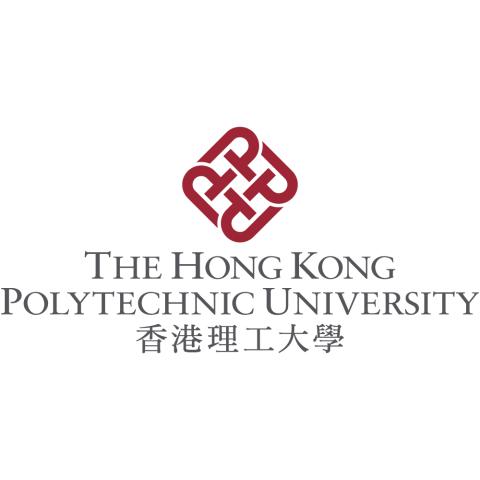
How supervisors can use research competitions to inspire lifetime learning
Winning awards is clearly a common goal of competition entry. However, effective management of student involvement in research project competitions should aim not only for success but also at ensuring a meaningful learning process for student researchers who dedicate considerable time to a project. Thus, a supervisor’s role encompasses managing the project but also mentoring students in terms of academic, social and teamwork skills.
This article shares insights into nurturing students in this way, so they gain a valuable learning experience and develop greater resilience in the face of challenges.
Generating meaningful learning from the project
Particularly for students who have a vision and can teach themselves to learn effectively and independently for the duration of a long project, participation in a research competition can provide the learning experience of a lifetime. However, the supervisor still plays an important role in inspiring students, particularly in times of uncertainty and difficulty, such as if and when significant changes need to be made.
The four-stage “Plan, Do, Check, Act” (PDCA) cycle can be applied as a simple yet effective approach for supporting students in solving problems and managing project changes. PDCA is a management method often used in business for the control and continual improvement of projects – in terms of both execution and outcomes. In addition to being beneficial for scientific research skills, the PDCA cycle can also train students in management skills for future career development.
- Tactics for leading and engaging students in research competitions
- How reverse mentoring helps co-create institutional knowledge
- Supervising neurodiverse postgraduate researchers
Change management is essential for students engaging in research projects with unpredictable incidents. PDCA guides students to be able to handle changes and problems with a positive and encouraging approach. Primarily, it is applied for planning data collection and analysis and verifying problems, but it also supports the management of research project processes, particularly implementation of changes towards continuous improvement and desirable outcomes.
In detail, the four steps of the PDCA cycle are:
Plan: identify an opportunity along with the objectives and processes required to deliver the desired results. Compared to student team members, the supervisor normally has a much better vision for overseeing an ongoing project. Therefore, the supervisor can often initiate the overall planning process by acting as a “storyteller” to students, covering potential discovery, the research process and learning along the way, followed by more granular tasks and deliverables that the students will need to fulfil during the research process.
Do: carry out the objectives defined in the previous step. At this point in the process, the supervisor should act mainly as the “instructor”, helping to monitor the progress of each milestone in the research project, answer questions and call group meetings to support each individual.
Check: review student performance and analyse the project’s results. The supervisor now plays the role of “goalkeeper”, critically evaluating the data collected and results obtained, ensuring that nothing “slips through”, as well as providing project improvement suggestions/comments.
Act: take improvement actions based on students’ learning outcomes for the project. In this step, the supervisor is responsible for providing concrete suggestions and solutions for project improvement in the role of “leader” – a person on whom the students can always follow and rely.
Just remember, since project management is a process of continuous improvement, the PDCA cycle should be carried out periodically in different phases of the project’s progress.
From an innovation and technology standpoint, both hands-on training (bottom-up) and theoretical exploration (top-down) are important to ensure desired research outcomes. Hands-on training can be guided by the supervisor and should be treated somewhat like assembling building blocks in a bottom-up manner. At the same time, theoretical exploration can be led by the supervisor who provides a semi- or fully open research topic for students to self-explore in a systematic, top-down manner. Academically, the combination of these approaches helps provide a holistic learning skill set of searching, reading, critical thinking and sharing.
To summarise, in driving the research process the supervisor will likely be required to act as: an elder, who can share their own fruitful experience; a wise person, who has a clear vision for the future; a friend, who supports the student when needed.
Building resilience in students
When addressing problems that arise during a research project competition, the supervisor is a key mentor whose role is to guide students in overcoming issues and seeking solutions. This will help not only in the short term, with the project, but it will also inculcate resilience in your students, a key quality for the workplace and their future in general. Some useful tactics here include:
Show care by solving problems in collaboration with students: it’s important to help students feel they are not struggling with a problem alone or doing so mainly for the supervisor’s benefit. Genuine care and helpful suggestions from a supervisor can increase confidence and persistence in problem-solving now and in the future.
Encourage with a talk: there may be times when students become demoralised if one of the team members struggles or fails, causing a possible domino effect. However, the supervisor can motivate students and restore their faith in the project by being supportive and, especially, by taking responsibility for any perceived deficiency.
Providing ongoing encouragement and inspiration for student researchers is not necessarily always a smooth and positive process. Even if they have tasted success in previous project competitions, it is important for a supervisor to know how to handle the disappointment inherent in unsuccessful outcomes. It must be kept in mind that, as in any science and technology discovery, a research project is a long-term learning process in which ongoing motivation of interest and persistence is crucial for success.
Zheng Pai is assistant professor in the department of industrial and systems engineering at the Hong Kong Polytechnic University. He is also the principal investigator of the Research Group of AI for Industrial Digital Servitisation (RAIDS).
If you found this interesting and want advice and insight from academics and university staff delivered direct to your inbox each week, sign up for the Campus newsletter.




